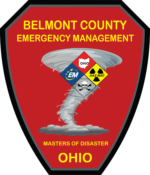Seniors
Get Informed
- Know what disasters could affect your area, which could call for an evacuation and when to shelter in place.
- Keep a NOAA Weather Radio tuned to your local emergency station and monitor TV, radio and follow mobile alert and mobile warnings about severe weather in your area.
- Download the FEMA app and get weather alerts from the National Weather Service for up to five different locations anywhere in the United States.
Make a Plan
Determine any special assistance you may need and include in your emergency plan.
- Create a support network of family, friends and others who can assist you during an emergency and share your disaster plans with them. Practice your plan with them.
- Make sure they have an extra key to your home, know where you keep your emergency supplies and how to use lifesaving equipment or administer medicine.
- If you undergo routine treatments administered by a clinic or hospital, find out their emergency plans and work with them to identify back-up service providers.
- If you have a communication-related disability, note the best way to communicate with you.
- Don’t forget your pets or service animals. Not all shelters accept pets so plan for alternatives.
- Consider loved ones or friends outside of your immediate area.
- Prepare an emergency kit for your pet.
- For related information visit our page on individuals with disabilities.
Get Your Benefits Electronically
A disaster can disrupt mail service for days or weeks. If you depend on Social Security or other regular benefits switching to electronic payments is a simple, important way to protect yourself financially before disaster strikes. It also eliminates the risk of stolen checks. The U.S. Department of the Treasury recommends two safer ways to get federal benefits:
- Direct deposit to a checking or savings account. If you get federal benefits you can sign up by calling 800-333-1795 or sign up online.
- The Direct Express® prepaid debit card is designed as a safe and easy alternative to paper.
